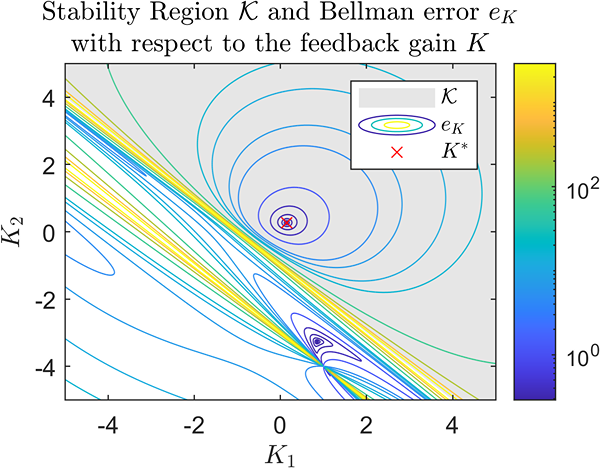
M. Sc. Armin Gießler
- Research Associate
- Group:
- Room: 202
- Phone: +49 721 608-43179
- Fax: +49 721 608-42707
- armin giessler ∂does-not-exist.kit edu
Karlsruher Institut für Technologie (KIT) Campus Süd
Institut für Regelungs- und Steuerungssysteme
Geb. 11.20 (Engler-Villa)
Kaiserstr. 12
D-76131 Karlsruhe
Curriculum Vitae
Studies of electrical engineering and information technology at Karlsruhe Institute of Technology (KIT) with a semester abroad at Linköping University in Sweden. Internship at Pepperl+Fuchs GmbH in Mannheim in the department of identification systems for factory automation (2017). Bachelor thesis at Vector Informatik GmbH in Stuttgart on the subject of "Optimization of parallelized flash processes within a vehicle" (2019).
Subsequent master studies at KIT with a specialization in control engineering and a semester abroad at the Instituto Superior Técnico in Portugal. Master thesis at the Institute of Control Systems (IRS) on the subject of "Distributed Optimization for Distributed Model Predictive Control" (2021).
Since January 2022 research and teaching assistant at IRS.
Research
Policy Optimization Methods for Linear Quadratic Regulator
My research focuses on innovative policy optimization methods for the continuous-time Linear Quadratic Regulator (LQR) problem with an infinite time horizon. One part of this work involves the development of dynamic state-feedback controllers, known as policy gradient flows, that efficiently solve the LQR problem. These dynamic controllers can stabilize polytopic linear parameter-varying systems even in the presence of abrupt parameter changes. This approach enables online solutions to the time-varying LQR problem, thereby improving the transient performance of the closed-loop system.
In addition, I develop data-driven policy optimization methods that learn optimal feedback directly from measured input and state data without explicit system identification. In this context, I investigate both behavioral system parameterizations and integral reinforcement learning approaches, from which I develop novel data-driven gradient flows, policy iterations, convex optimization methods, and a data-driven continuous-time algebraic Riccati equation. My work bridges classical control methods, reinforcement learning techniques, and data-driven approaches.
| Title | Type | Person in Charge |
|---|---|---|
| Dynamische Regelung von P-Lasten in DC Microgrids | Master Thesis | |
| Optimal passivity-based Control | Master Thesis |
Publications
Gießler, A.; Strehle, F.; Illerhaus, J.; Hohmann, S.
2025. arxiv. doi:10.48550/arXiv.2505.22248
Malan, A. J.; Gießler, A.; Strehle, F.; Hohmann, S.
2024. 2024 European Control Conference (ECC), Stockholm, 25th-28th June 2024, 1097 – 1104, Institute of Electrical and Electronics Engineers (IEEE). doi:10.23919/ECC64448.2024.10590807
Gießler, A.; Jané-Soneira, P.; Malan, A. J.; Hohmann, S.
2023. 2023 62nd IEEE Conference on Decision and Control (CDC), 1555 – 1562, Institute of Electrical and Electronics Engineers (IEEE). doi:10.1109/CDC49753.2023.10383211
Jané Soneira, P.; Gießler, A.; Pfeifer, M.; Hohmann, S.
2023. IEEE 61st Conference on Decision and Control (CDC 22), Cancún, Mexico, December, 6-9, 2022, 3939–3946, Institute of Electrical and Electronics Engineers (IEEE). doi:10.1109/CDC51059.2022.9993364


